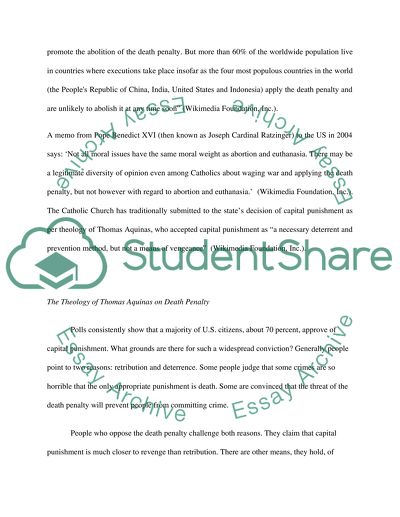Cite this document
(The Catholic Church on Death Penalty Case Study, n.d.)
The Catholic Church on Death Penalty Case Study. Retrieved from https://studentshare.org/religion-and-theology/1556744-history-of-the-catholic-church-on-the-death-penalty-and-how-it-has-changed-over-time
The Catholic Church on Death Penalty Case Study. Retrieved from https://studentshare.org/religion-and-theology/1556744-history-of-the-catholic-church-on-the-death-penalty-and-how-it-has-changed-over-time
(The Catholic Church on Death Penalty Case Study)
The Catholic Church on Death Penalty Case Study. https://studentshare.org/religion-and-theology/1556744-history-of-the-catholic-church-on-the-death-penalty-and-how-it-has-changed-over-time.
The Catholic Church on Death Penalty Case Study. https://studentshare.org/religion-and-theology/1556744-history-of-the-catholic-church-on-the-death-penalty-and-how-it-has-changed-over-time.
“The Catholic Church on Death Penalty Case Study”. https://studentshare.org/religion-and-theology/1556744-history-of-the-catholic-church-on-the-death-penalty-and-how-it-has-changed-over-time.


